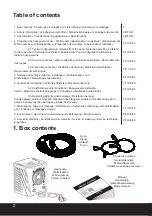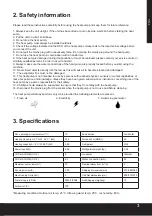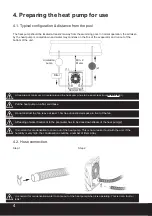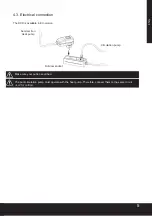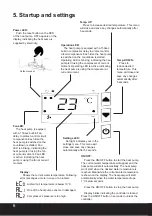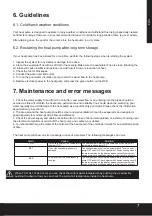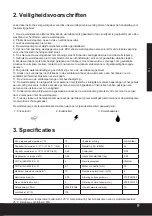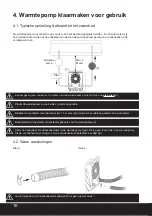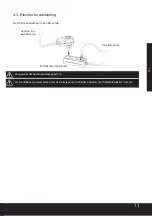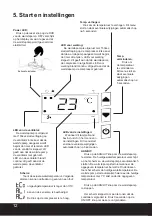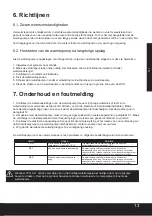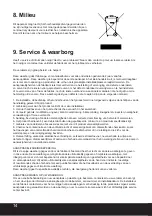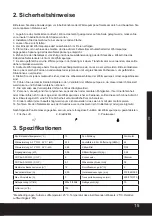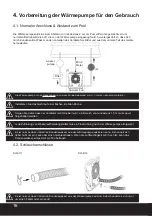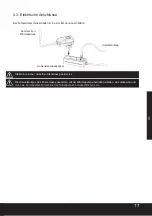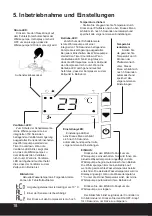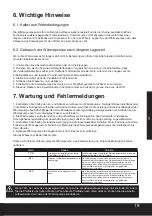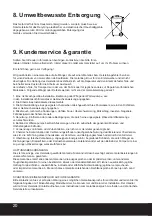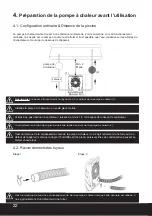
7
6. Guidelines
6.1. Cold/harsh weather conditions
Your heat pump is designed to operate in rainy weather conditions and withstand frost using a specially created
antifrost technology. However it is not recommended to leave it outside for long periods of time (eg over winter).
After draining down the pool for the winter, store the heat pump in a dry place.
6.2. Restarting the heat pump after long term storage
If your heat pump has been stored for a long time, perform the following steps when re-starting the system:
1. Inspect the system for any debris or damage to the case.
2. Clean the evaporator fins with a soft cloth if necessary. Make sure the evaporator fins are clean. Blocking the
air intake will cause insufficient operation and will result in lower production of heat.
3. Check the fan for blockages.
4. Connect the water inlet and outlet.
5. Turn on the pool water circulation pump to start the water flow to the heat pump.
6. Restore electrical power to the heat pump and press the green button on the RCD.
7. Maintenance and error messages
1. Check the water supply to and from the unit often. Low water flow or air entering into the pipes should be
avoided, as this will diminish the heat pump performance and reliability. You should clean the swimming pool
water regularly to avoid damage to the heat pump as a result of dirty pool water. Please check the information
about warranty in section 9.
2. The area around the heat pump should be clear and well ventilated. Clean the evaporator and evaporator
guard regularly to maintain good air flow and efficiency.
3. Check the power supply and cable connection often. In case of abnormal operation or a smell of burning near
the electrical compartment, switch off the heat pump and contact your dealer.
4. You should discharge the water at the bottom of the heat pump if the unit doesn’t work for an extended period
of time.
The heat pump will show an error message in case of a problem. The following messages can occur:
Alarm
Cause
Solution
TCO
It’s too cold outside (The temperature
is below 10°C) .
The heat pump will start automatically when the ambient air
temperature rises above 10°C.
AL1
One of the heat pump sensors is
damaged.
The heat pump does not restart automatically. Turn the heat
pump OFF and ON. Check whether AL1 keeps coming back. If
the alarm remains on the display please contact your service
centre or similarly qualifi ed persons in order to avoid a hazard.
AL2
The pressure of the compressor is
too high.
The heat pump does not restart automatically. Turn the heat
pump OFF and ON. Check whether AL2 keeps coming back. If
the alarm remains on the display please contact your service
centre or similarly qualifi ed persons in order to avoid a hazard.
When TCO, AL1 or AL2 occur you can check the current water temperature by pushing the up arrow. By
pushing the down arrow you can check the current air temperature inside the heat pump.
ENG
Summary of Contents for SF35
Page 27: ...27 FR ...


